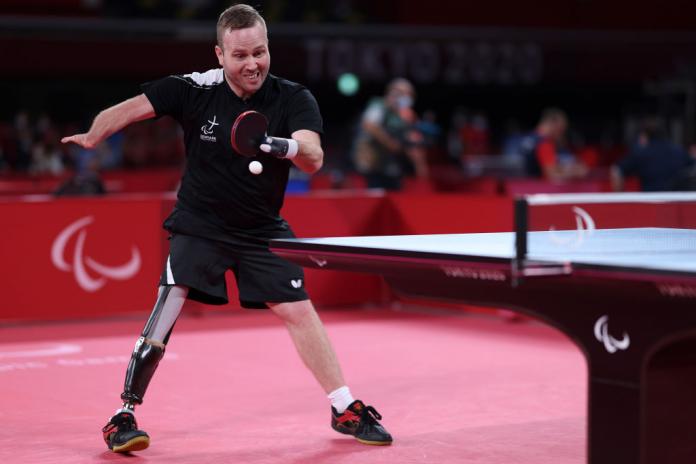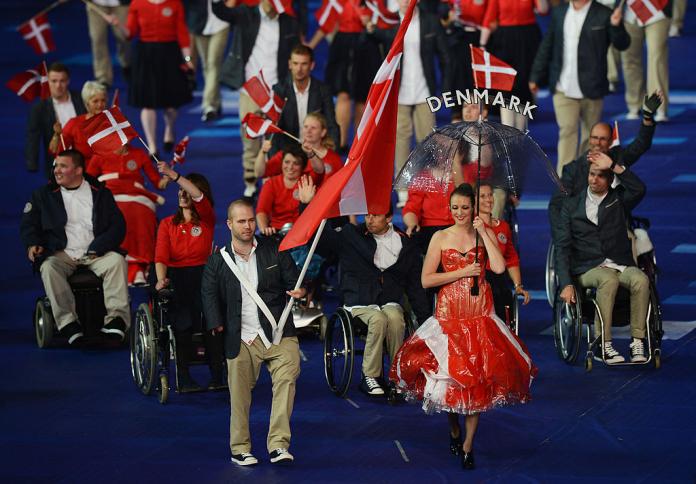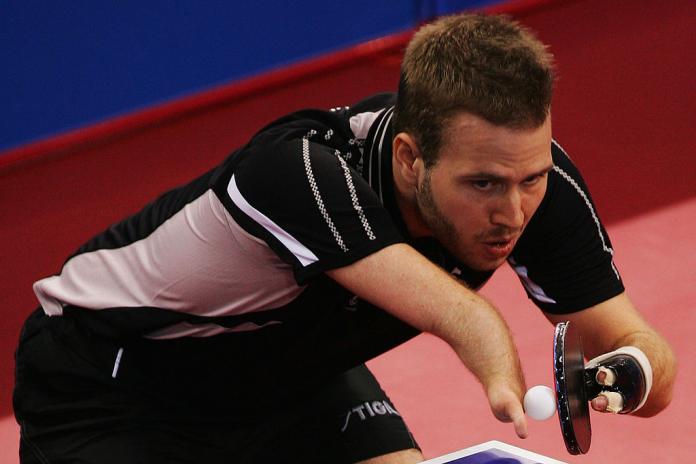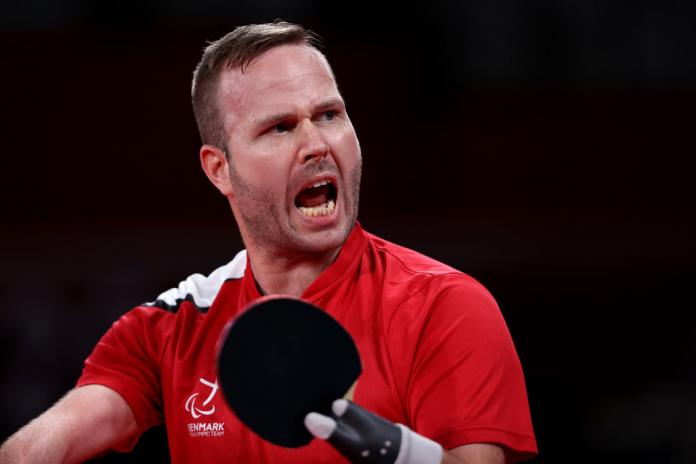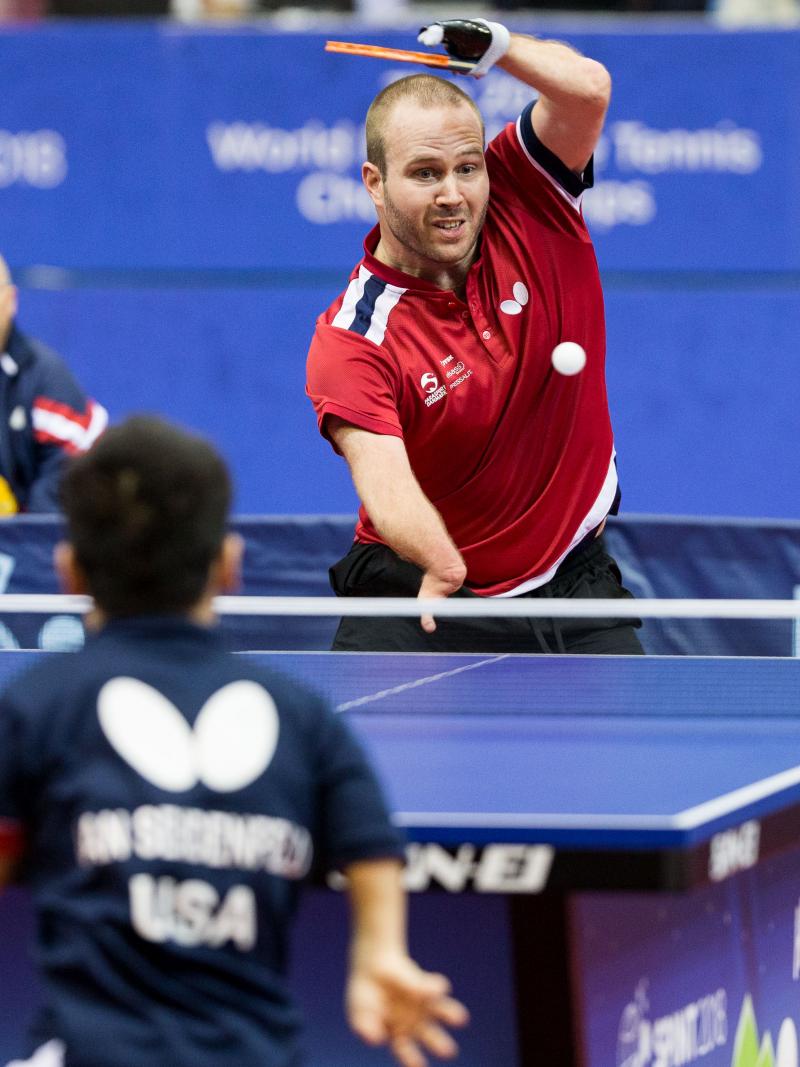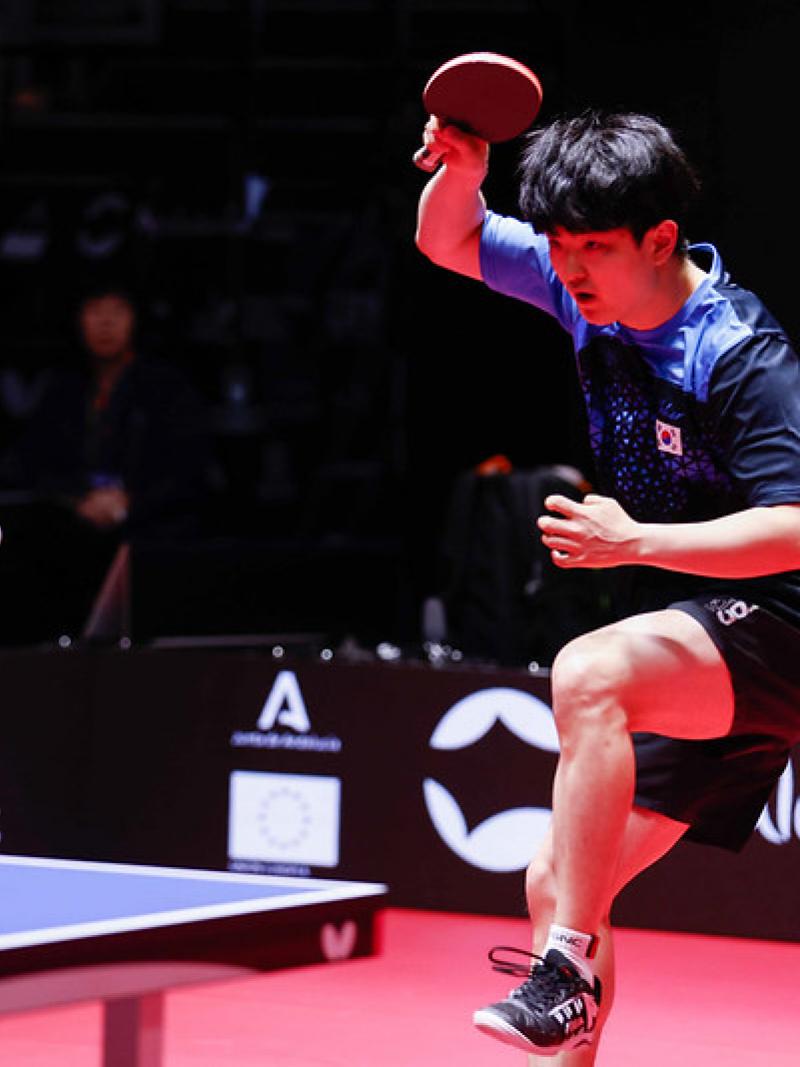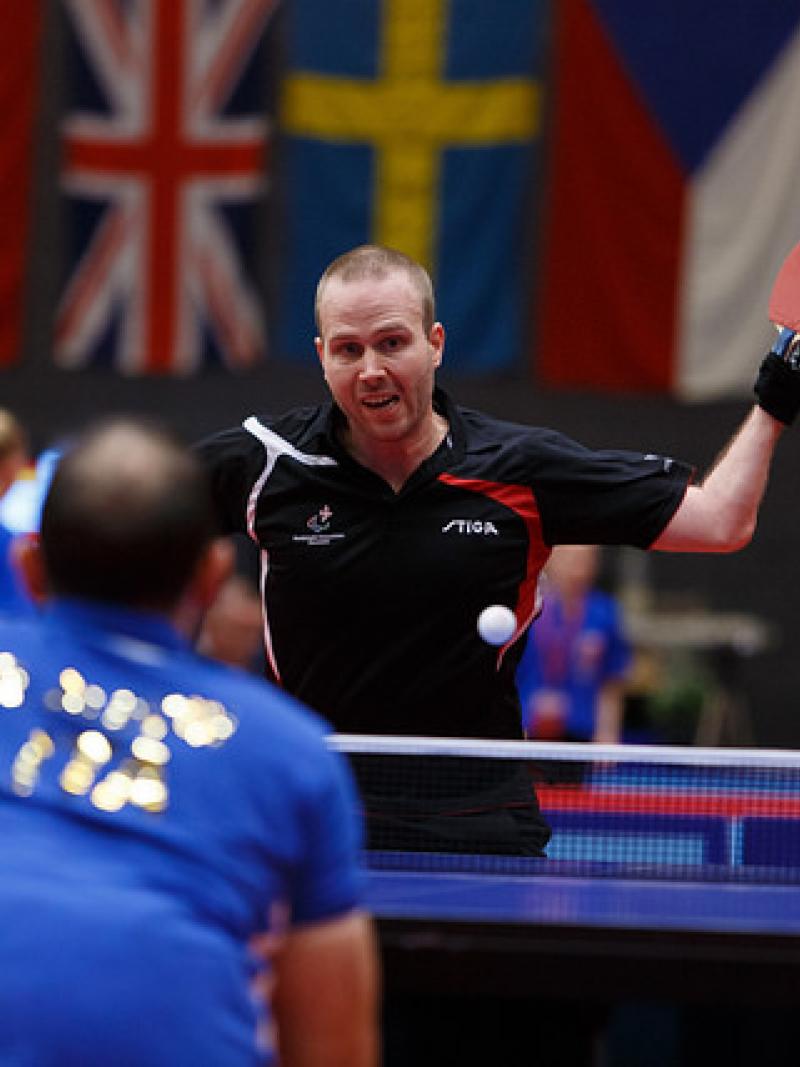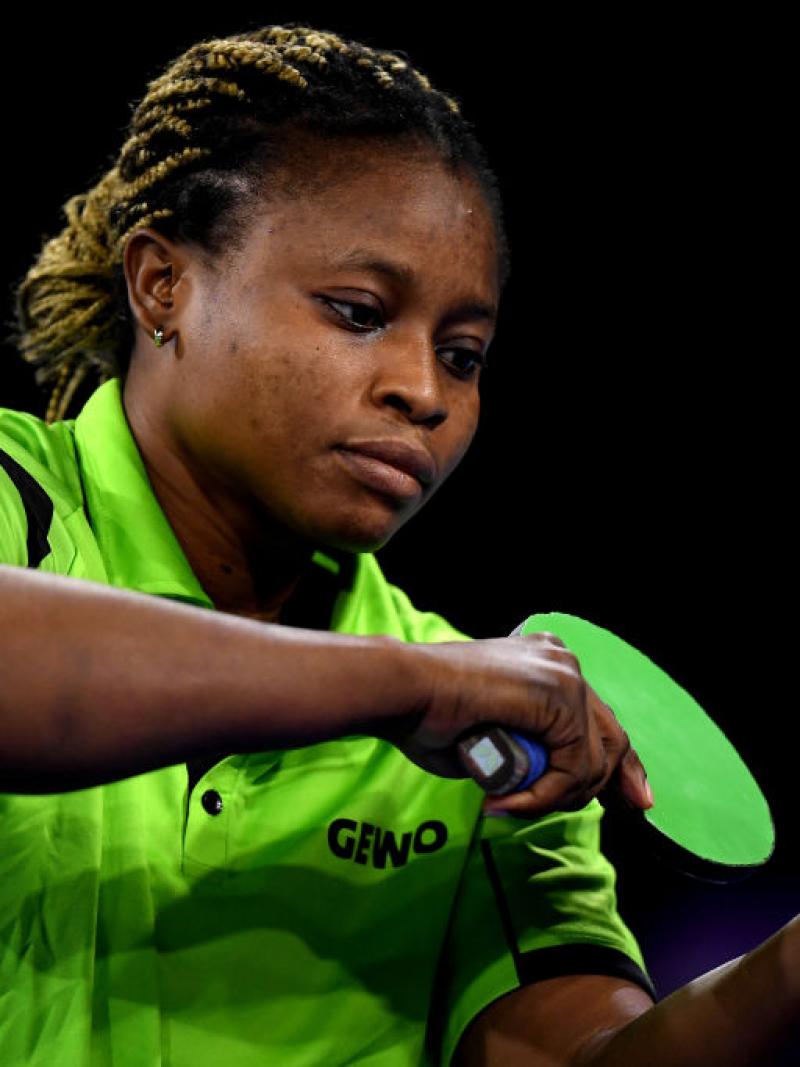Paralympic champion Rosenmeier using Para table tennis as ‘tool’ to initiate change
Five-time Paralympian Peter Rosenmeier did not have a role model when he was growing up. Now, the Danish star wants to prove that anyone can succeed 23 Apr 2023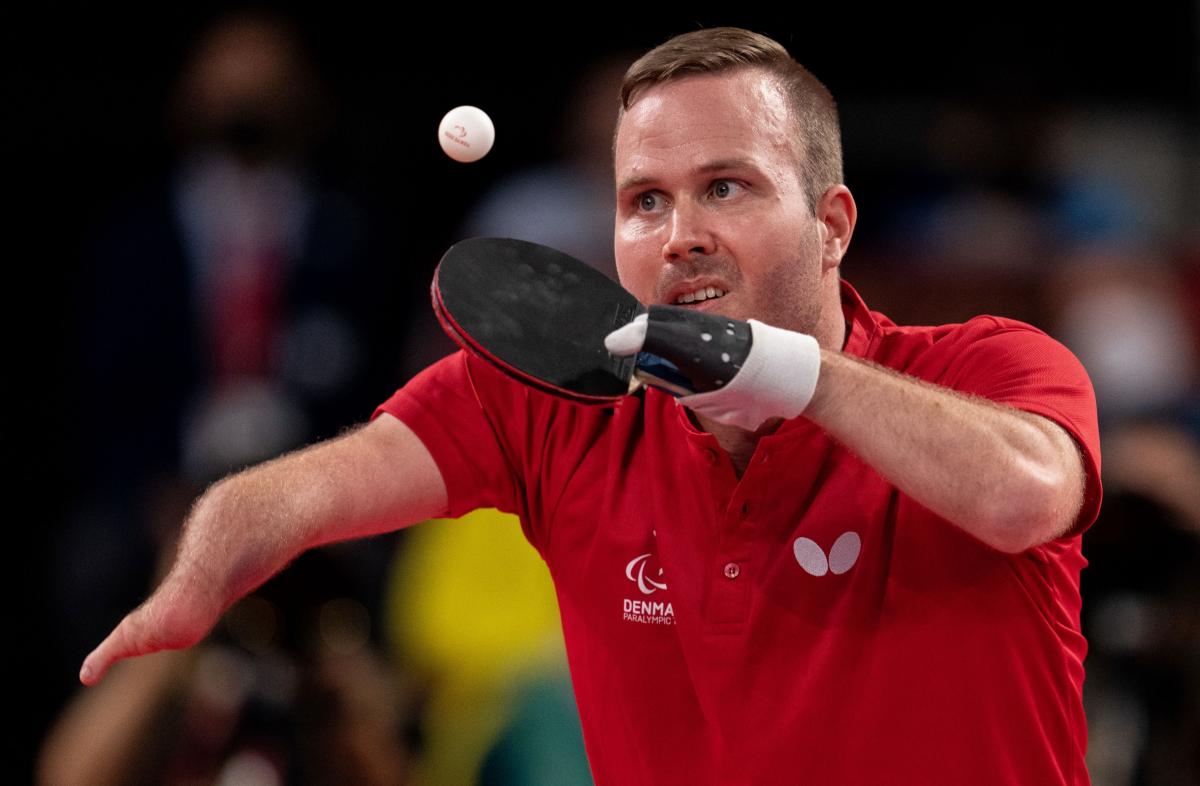
Nearly two years since competing at his fifth Paralympic Games, Para table tennis star Peter Rosenmeier is reflecting on his childhood in Denmark and how far the sport has taken him over three decades.
“With table tennis, for the first time I found a sport that I could compete against kids my age,” he said. “If I didn’t have my disability, I would never have played table tennis. It would never have happened.
“I would have played soccer or handball or badminton because that’s what everybody else in my town was doing. It was the disability that brought me here. I found meaning with my sport and found somewhere that I had the possibility to compete. Then it just took off from there.”
Rosenmeier has won five medals, including two gold, across five Paralympic Games. The athlete has also captured multiple titles at the World and European Championships.
Becoming a role model for all
Despite his illustrious career, the 39-year-old athlete recalls not having a role model when he was young because people with disabilities were rarely featured in “anything” at that time.
That is why over the years, his attitude toward sports has changed. Now Rosenmeier sees Para table tennis as a way to create change. While he wants to win his third Paralympic gold medal at Paris 2024, he is not just doing it for himself.
“In the early years, sport results were extremely important for me. Now the sports results are equally important but it’s not because of the result or medals. It’s because of the attention that follows the result,” Rosenmeier said.
“Instead of the sport being the No. 1 goal, it’s a tool,” he added. “It’s important for me to get the message out that it is possible to be a success and it is possible to succeed even though you don’t look like everybody else.
“There are many disabled people in the world that need role models.”
Where dreams start
Rosenmeier took up Para table tennis when he was around 11 years old, and soon people started telling him that he had a talent for the sport. He was introduced to the junior national team about five years later and that was where his dream started to take shape.
“One day, the coach asked me what my dreams were for the future. I said that I wanted to win the Paralympic Games in 2008, seven years later,” the athlete said.
“Of course, I thought that was a little naïve, but he bought in on the concept and said, ‘OK, I think it’s possible and that could happen, but then you have to aim for it your whole life from now’.”
And he did exactly that.
Rosenmeier moved to Copenhagen after graduating from high school. While he started attending school in the Danish capital, he did not open a book for four years and spent his time developing Para table tennis skills instead.
Looking back, it was the “most important period” in his career. Rosenmeier shot up the world rankings and became a Paralympic champion at Beijing 2008, after capturing a bronze medal in his Paralympic debut at Athens 2004.
Witnessing change
At the 2008 Games in the Chinese capital, Rosenmeier beat defending champion Daniel Arnold of Germany 3-1 in the men’s singles class 6 tournament. While it was a big milestone in his career, the Rio 2016 Paralympic Games hold an even more special place in Rosenmeier’s heart.
He earned his second gold medal there, but it was not just that.
“When we were in Beijing in 2008, they didn’t show anything on the national TV (in Denmark). But in Rio, my final was on national TV. A lot of people in Denmark saw this, so suddenly from Beijing where nobody knew (me) then I went to Rio and everybody knew,” he said.
Many people in Denmark stayed up until 11 p.m. to watch Rosenmeier’s final against Spain’s Alvaro Valera. He received numerous messages on social media and appeared on TV talk shows to share his story.
“It felt like you’re not only doing this for yourself – you’re also doing it for your country and that’s an amazing feeling,” Rosenmeier said. “We have an obligation toward the rest of society to use this platform to show that people with disabilities can perform when given the right circumstances.”
A willingness to fail
In order to succeed, it is important not to be afraid of failing, the Paralympian said. That message does not only go out to young people with disabilities, but to their parents, who may be overprotective.
Rosenmeier played football for six years and learned to swim before he took up Para table tennis. He said that his parents allowing him to play football was the “most important decision in my entire life.
“Fortunately for me, my parents made the decision quite early that if I were to be some kind of success in this society, I would probably have a lot of defeats,” he said. “The best way to handle this was to mess up as young and soon as possible, with them being on the sideline to help me.
“What if I wanted to climb a tree or if I wanted to go to a soccer club? Then they let me do that until I didn’t want it anymore. They found a great balance between protecting me but also throwing me out in deep waters.”
Next generation of Para sport stars
Rosenmeier has been involved in a programme called “Rising Stars” launched by Parasport Denmark in 2018 to recruit and develop the next generation of athletes in Para table tennis, Para swimming and shooting Para sport.
While he wants to take the spotlight at Paris 2024 and play in front of his daughters for the first time at a Paralympic Games, Rosenmeier also already knows what he wants to do after he hangs up his racquet.
And that is to continue being visible in the media by hosting a TV show.
“In the best of worlds, it will be a programme that doesn’t have anything to do with disabilities,” he said.
“(I want to show that) it doesn’t matter how you look or what your appearance is as long you want it enough and you fight for it. That’s my mission.”

 Facebook
Facebook
 Instagram
Instagram
 Twitter
Twitter
 Youtube
Youtube
 TikTok
TikTok
 Newsletter Subscribe
Newsletter Subscribe

